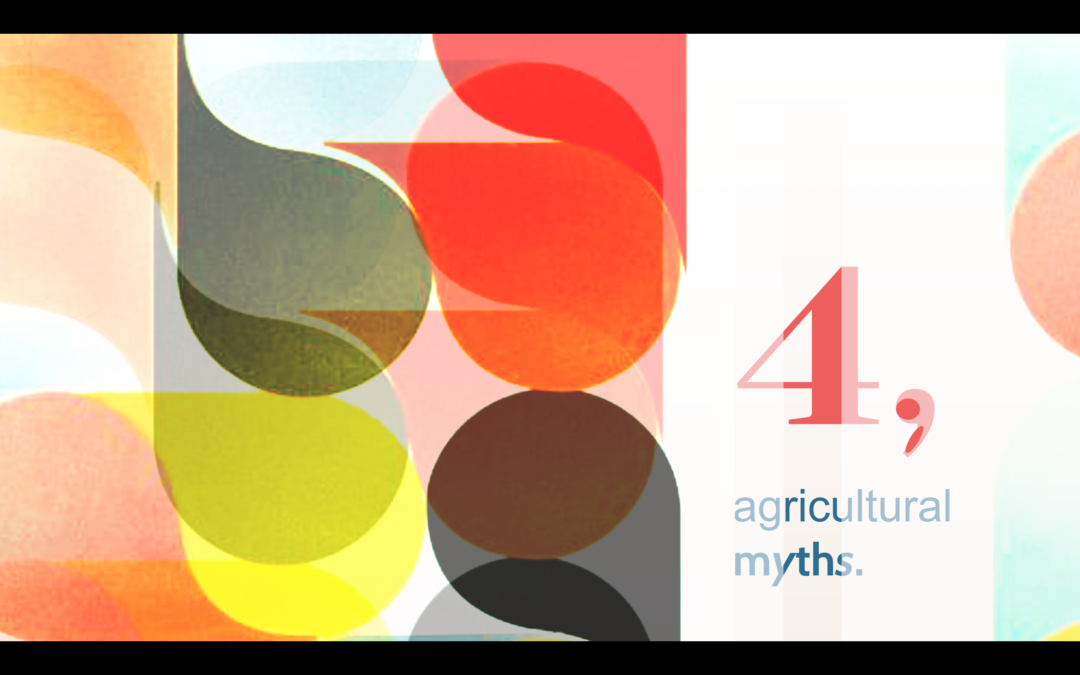Debunking Four Myths About Food and Agriculture
Written By: Deana Bjedi
Edited By: Deana Bjedi
Designed By: Morouje Sherif
Published By: Howie Nguyen
What’s true and what’s not? It’s hard to tell these days, especially when it comes to our food choices and how our food is grown. The rise of diet and wellness culture has emphasized the use and commonality of several terms related to food (ex. organic, natural, vegan, gluten-free, hormone-free, keto, etc.). I’m sure we’ve all heard of these terms but we probably don’t fully know what they mean. It’s especially important, now more than ever, to learn the truth about these terms since we now find them on almost every food label. Does a food being organic or natural make it healthier? Is hormone-free food even possible? And what is modern-day farming like?
Organic Is Better Than Conventionally Grown
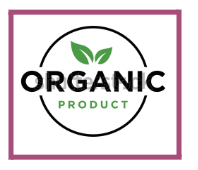
The first myth to debunk is that organic food is healthier than conventionally grown food. First of all, what even makes food organic? Organic food is produced without synthetic fertilizers/pesticides, GMOs, growth hormones, and antibiotics. This is why organic options are usually more expensive than conventionally grown foods. Yes, organic food is nutritious and safe but the same applies to conventionally grown food, and studies have shown that there is not much difference in nutritional value between the two. If you have the extra money to spend and the way organic foods are produced seems more right for you, then go ahead and buy organic! If not, it is totally fine to consume conventionally grown foods as well, what’s most important is that you won’t be missing out on extra nutrients.
Natural Foods Are Grown Differently
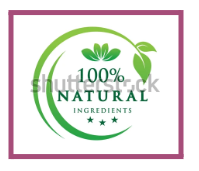
The second myth on this list is that foods labeled as “natural” are grown differently. The word “natural” on any food label has absolutely no meaning, it is simply used for marketing to make a food appear healthier. “Natural” is not a regulated word on food labels meaning there is no difference between the way that “natural” peanut butter is produced and the way that average peanut butter is produced. Keep an eye out for this sneaky marketing tactic next time you’re grocery shopping.
Foods Labeled Hormone-Free Are Hormone-Free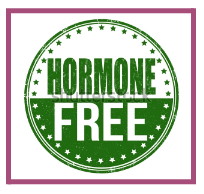
The third myth on this list is that foods labeled “hormone-free” are actually hormone-free. To start, Canada prohibits the use of added hormones on all eggs, milk, poultry and pork. Growth hormones are only allowed to be used on beef cattle but even this doesn’t drastically change hormone levels in treated cattle compared to untreated cattle. With that being said, even if foods have not been injected with additional hormones, all plants and animals naturally produce and therefore contain hormones. This means that no food can ever be hormone-free, so if you ever see this label on a food at the grocery store, just know it is not accurate!
Farming Is Low-Tech and Traditional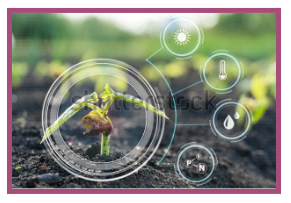
The last myth to debunk is that farming is low-tech and traditional. When we think about farms we may envision an old farmer shoveling soil on a small piece of land. This certainly is one aspect of the reality of farming but realistically would these small farming methods be able to keep up with the growing food demand? Probably not. The reality is that today’s farming and agriculture requires a lot of technology in order to efficiently produce more food and fulfill its growing demand. One example of farming technology is indoor vertical farming where plants are stacked on top of each other and grown in a closed area. Automation technology is another useful tool designed to make small tasks like irrigation, harvesting, and seeding go faster. Artificial intelligence is another type of technology used to help farmers monitor soil conditions, temperature, and humidity in a given area. If it weren’t for all of this technology, farms would be significantly less efficient.
These are some of the most common food and agriculture myths debunked. Hopefully you are more clear about the ways our food is grown and how deceiving food labels can be.
Bibliography
Gallegos, J. (2017, July 24). 10 mega myths about farming to remember on your next grocery run. The Washington Post. Retrieved June 24, 2022, from https://www.washingtonpost.com/news/speaking-of-science/wp/2017/07/24/10-mega-myths-about-farming-to-remember-on-your-next-grocery-run/
Is Organic Food Healthier than non-organic food?: Bayer Canada. Is Organic Food Healthier Than Non-Organic Food? | Bayer Canada – Bayer Canada. (n.d.). Retrieved June 24, 2022, from https://www.bayer.com/en/ca/canada-organic-or-conventionally-grown
Ku, L. (2021, October 6). New Agriculture Technology in modern farming. Plug and Play Tech Center. Retrieved June 24, 2022, from https://www.plugandplaytechcenter.com/resources/new-agriculture-technology-modern-farming/
MacGregor, E. (2018, August 29). Four big myths about food and farming: Debunked. Ontario Home Economics Association. Retrieved June 24, 2022, from http://www.ohea.on.ca/blog/myths-about-food-and-farming-debunked

